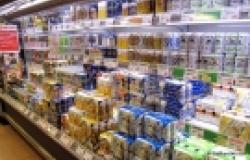How to Test Policy Interventions for Sustainable Food Choices

Luca Panzone explores the uses of new tool for the study of retailing and consumption.
There is increasing policy attention on the choices we make as consumers, particularly the impact these choices make on the environment. Everyday choices such as what we buy in supermarkets can have a significant impact on the planet, as they determine what we cook, eat or waste.
The plastic bag charge in the UK, for example, resulted in a massive drop in plastic bag use at retailers, significantly reducing plastic waste. For food shopping, if we could understand what drives our choices better, we could then advise retailers on how to design the shopping experience to better facilitate the task of consumers who value protection of the environment.
Most of the food choices we make for home consumption, nowadays occur in a supermarket or other retail environment (e.g. restaurants, etc.), and understanding how consumers behave within this context is crucial. Modern society has also shown a change in the way they shop: online sales in supermarkets have been increasing steadily over the past years (see Figure 1). This change is driven by the flexibility and convenience of online shopping, as well as the increasing availability of technological support to consumers, such as mobile apps.
The experimental online shopping platform
The NUFood experimental online shopping platform shows how an online supermarket can inform consumers about the choices they make by viewing products based on their carbon footprint and nutritional value. For the project all participants are assigned a virtual weekly budget (e.g. £20) to spend on groceries.
This budget is “real”: participants actually spend as much of this budget in the virtual shop as they wish, and they actually receive the items they indicate for purchase and all the unspent budget (up to a trip per participant). In other words, this is real money in their pocket for them to spend as they see fit.
Figure 2: Graphical representation of the functionalities of the NUfood retailer.
What can we learn about sustainability using an experimental online retailer?
The NU-Food supermarket collects data similar to loyalty cards data that can be used to understand the sustainability of consumer choices, and explore how policy, marketing, and choice can be used to make current consumption patterns more sustainable. Rather than focusing on one binary choice, sustainability can be more profoundly understood by studying the formation of a basket, which does not merely reflect the either/or choices a person makes, but accounts for the complex decision making process involved.
Consumers shop with multiple objectives in mind: they may aim at low-carbon baskets, but also at buying an overall low-calories basket that is high in taste. In the virtual supermarket consumers “break down” these “global” basket goals by assessing each choice against their overall goal. As the basket fills up, the consumer can revise choices (i.e. replace products) to reach the final goal before checking out.
This “basket approach” more accurately describes the complexity of choices. For instance, consumers trying to reduce the carbon footprint of their basket can replace standard milk with organic milk, which is lower in carbon, or replace beef with beans or meat substitute products, with large carbon savings.
Notably, goals might be conflicting at choice level, for example, the correlation between kilocalories and carbon footprint is generally low, and low-fat is often associated to lower perceived taste. This requires consumers to make overall basket trade-offs that cannot be noticed at an individual level.
As a result, in a basket consumers can compensate “indulgent” high-carbon options with “restrained” low-basket options, while still reaching the overall global goal of a low-carbon basket. This balancing behaviour can only be observed in a multi-choice setting, and is lost in the analysis of single choices.
Testing policy interventions for sustainable food choices
Compared to a physical store a virtual supermarket tool allows researchers to conduct various interventions to sub-groups of participants. It can be used to test the effect of a change in policy, layout, or choice availability on consumer behaviour. It could for example estimate the impact of a carbon tax, or to try different designs for a carbon label. It allows researchers to study decisions participants make over a sequence of ‘shopping trips’ (e.g. over one month), to determine the long-term impact of a policy intervention.
The NU-Food online retailer can incorporate a questionnaire asking consumers about a range of opinions, e.g. attitudes towards the environment, or other survey-based elements relevant to the study of food choices and sustainability (e.g. measures of implicit attitudes). Sales from the retailer can also be combined with sensory studies, biomarkers from human trials, or dietary recall questionnaires that estimate actual consumption.
Next steps for research
This new tool enables the study of a number of research questions related to retailing and consumption. We will soon collect experimental data with students in Newcastle, followed by a larger survey in Manchester. We are hopeful that this tool will allow us to better understand how we can make consumption more sustainable and improve the quality of life for all consumers throughout the world.
About the research
Research for the NU-Food project is a collaboration between Dr Luca Panzone, Dr Alistair Uph (University of Manchester), Dr Daniel Zizzo (Newcastle University), Dr Denis Hilton (University of Toulouse), Dr Steven Hall (Newcastle University) and Dr Adrian Clear (Northumbria University)
Dr Luca Panzone is a lecturer in consumer behaviour at Newcastle University. His research interest is mainly focused on the analysis of food consumption and demand from a quantitative, applied micro-econometric perspective on households and consumers. The online supermarket platform he has developed with colleagues is designed to help researchers study sustainable choices and received partial funding from the Newcastle University Institute of Sustainability This post first appeared on the Institutes' blog.
Photo credit: shibuya246 via Foter.com / CC BY-NC




